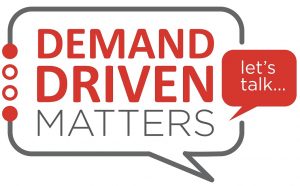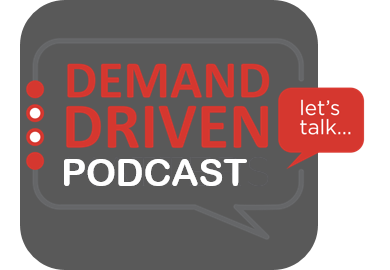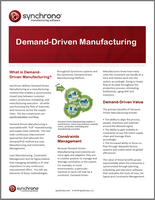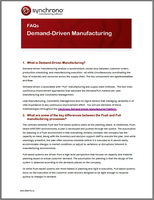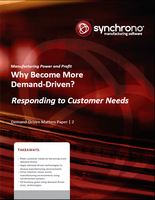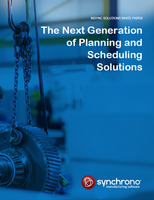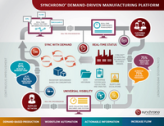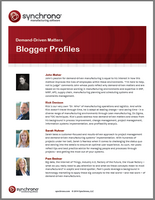
The Who, When, What and Where for a Solid Project Doc Strategy
Imagine if your most important photos—your child’s first birthday party, the day you brought home your new dog, that awesome vacation in Europe—were all lost forever. Your computer fell into the bathtub or the hard drive was wiped by an electrical storm, and you didn’t back up your drive. Don’t let this happen to your project documentation. Keep it accessible and functional for the life of your project as well as secure for future use, whether it’s for new end users, future implementations, or even project auditors. Consider the following and you will be on your way to doing documentation right:
You’ll want to figure out the Four W’s- Who, When, What, Where
Who? Who needs access and what level of access do they need? Do they have authority to sign off on documents, or are they just a viewer? Someone who can edit documents and share them? Define a few user groups according to their necessary level of editing rights. Use categories such as content Viewers, Team Members (creating and posting documentation) and Administrators. Also, be sure to get all individuals setup with a secure login so that they can access the information. Line up someone to be in charge of setting up and allowing new access requests for others. Be sure to designate someone that will be in charge of overall organization and version clean-up within the space. Sometimes multiple drafts of one document can get overwhelming, so you’ll want to be sure someone is tidying up along the way so that old versions aren’t confused with the latest drafts.
What? Now we’ll really need a good project tool with all of the built-in capabilities you need to ensure security, version control and ease of use. If the client company uses a Windows-based authentication system, this will work well with a number of collaboration tools, such as Microsoft® SharePoint or JIRA Confluence. These tools also make it possible for contractors, like partner company team members, to have project-specific login credentials.
Selecting a collaboration tool within the overall corporate IT strategy also means that the platform is supported and that retention policies are already in place for later access. Commonly, these collaboration tools are accessible via a secure Cloud for safe remote access and allow you much more functionality than just an electronic “file cabinet.”
As for the “what” to store, I recommend a certain baseline to get started, then some guidelines to execute and finalize the document repository:
- Blank, clean versions of all required deliverables
- Meeting minutes from any meeting where decisions are made and action items assigned
- Project management documentation (such as RACI, team contact list, charter, statement of work)
- One final version of all required deliverables in a folder marked “Final Deliverables”
- PDFs of final deliverables with written sign-offs from required approvers (each page initialed and signed on the approval page)
- Archive folders of older versions of deliverables or other documents
When? When should you set up the collaboration software or a documentation repository? It’s prudent to do this as far in advance of the project as possible so that pre-project kick-off communications or documentation can be posted to have an effective Day 1. Many companies have tools that they use to ensure a current version of the very first documentation. Dangerous gaps can form that leave crucial decisions out of the paper trail.
Don’t worry; you don’t have to have the entire organizational structure of the project down before you build your platform. This is just an address for everyone to visit and build from as you go along.
Where? You’ll need a location that is accessible to both the client and the partner team. If you host on your internal network, you might get into proprietary issues for client-side devices—and your partner team might not have the access they need. Work out any remote login logistics prior to the project start date.
The Email Error
I have seen personal emails between project team members disappear or cause serious problems in a project. Your “where” must definitely not rely solely on one-to-one emails that contain any project information that’s crucial to decisions or outcomes—basically, ask your team to add all necessary communications and information to the project collaboration space. Make it all public knowledge so the private email accounts of your project won’t leave gaps in your project depository.
Having a great place—a “where” that allows you to take action based on the most recent decisions—allows you to trust that your project documents represent all of the deliverables you need to track during the project and ensure that they’re not lost at the end of the line.
One version of the truth
You can tell that the overarching rules for project documentation are visibility and veracity. You need one version of the truth, for the right people, at the very beginning of a project and beyond.
Share your insights and any tricks you might have on project documentation done right. Also, send me any implementation questions or topics you would like to see discussed in an upcoming post. More tips of the trade coming up in future blogs – stay tuned!
 Sarah takes a customer-focused and results-driven approach to project management and demand-driven manufacturing systems implementation. With hundreds of projects under her belt, Sarah is fearless when it comes to challenging the status quo and delving into the details to ensure an optimal user experience. As such, her posts reflect tips and best practice advice for managing people and processes through projects – and getting the most out of your systems.
Sarah takes a customer-focused and results-driven approach to project management and demand-driven manufacturing systems implementation. With hundreds of projects under her belt, Sarah is fearless when it comes to challenging the status quo and delving into the details to ensure an optimal user experience. As such, her posts reflect tips and best practice advice for managing people and processes through projects – and getting the most out of your systems.





